We can't not do this!
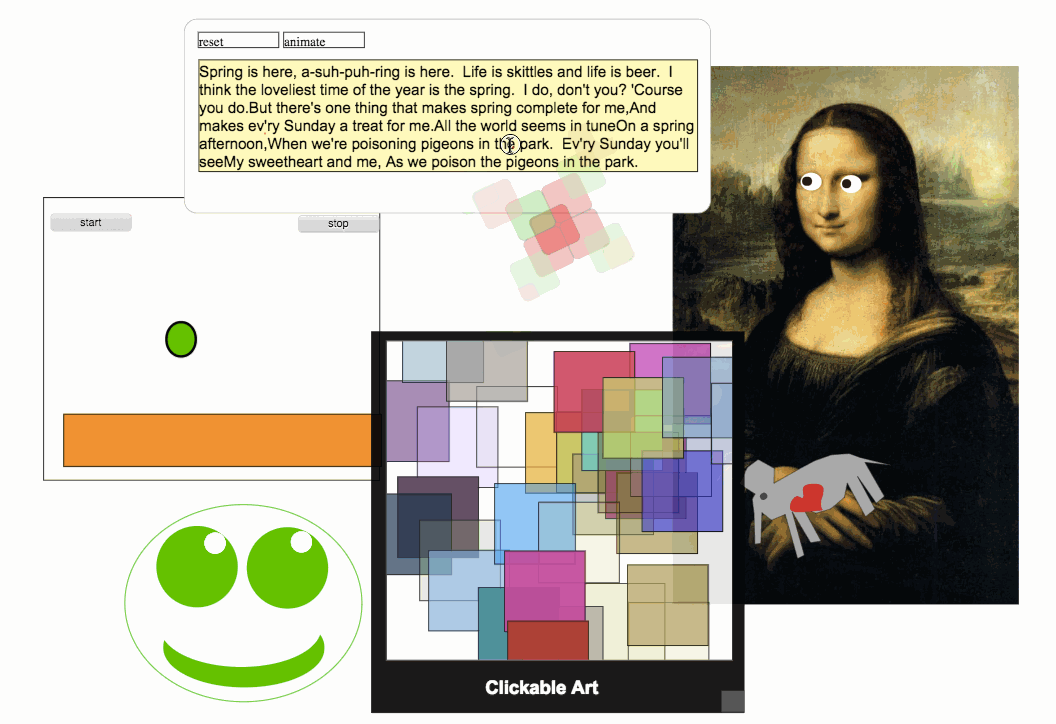
Get in touch
Dan Ingalls is the principal architect of five generations of Smalltalk environments. He designed the byte-coded virtual machine that made Smalltalk practical in 1976. Dan also invented BitBlt, the general-purpose graphical operation that underlies most bitmap graphics systems today, as well as pop-up menus. Dan received his B.A. in Physics from Harvard University, and his M.S. in Electrical Engineering from Stanford University. He is a recipient of the ACM Grace Hopper Award, and the ACM Software Systems Award.
Robert Krahn is a software engineer and researcher who designed and implemented the current version of Lively. His areas of expertise include software construction kits, dynamic programming languages, and full stack web development. While working at Zendesk he got experience in building user facing products for a startup.

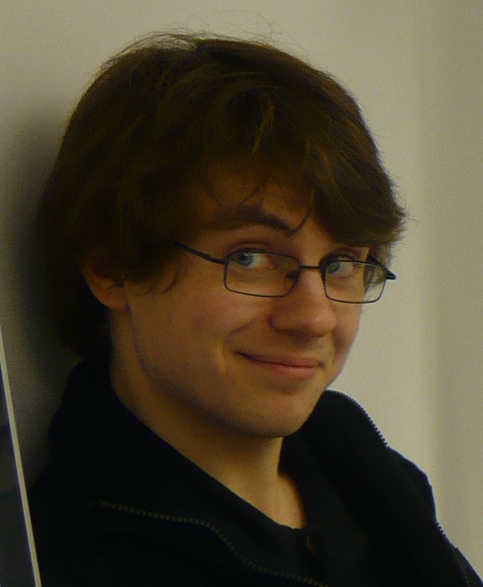
robert@kra.hn
danhhingalls@gmail.com
The Lively universe creates community cohesion, connects a world of devices and empowers creativity
What's next? Possible directions...
Research
• Live Designer’s Notebook: Integrated focus on creative leverage in an archival environment
Educational product
• Objects First! – a better take on learning to code
• Playful but deep learning environment, no artifical walls
Industrial product
• Rapid prototyping and “lifting” for the Internet of Things, expert systems, and other markets
• Live and rich development and debugging environment for the cloud
A swiss-army-knife for business experts
• Connect a running spreadsheet application with powerful end user programming tools to visualize, script, and process data
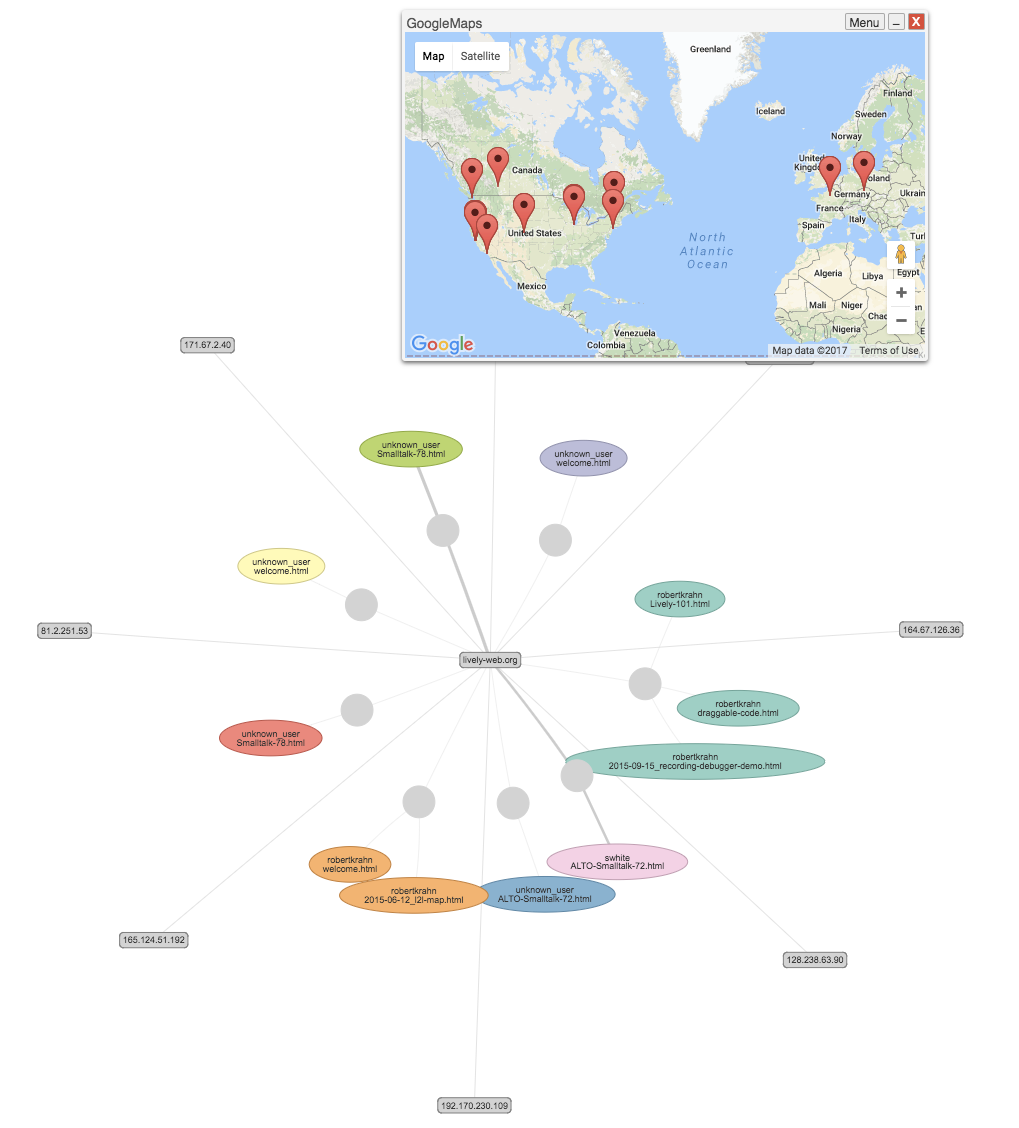
Lifting: Augmenting and orchestrating systems –
By coupling Lively to non-live systems we can add dynamic behavior and live scripting to otherwise static systems as well as rich mashups combining applications and data sources.
Examples are:
• Interactive data visualizations
with Aran Lunzer’s LivelyR
• Scripting behavior in VR with
David Smith’s CEO Vision
• Immediate feedback and
debugging in cloxp, a live Clojure IDE
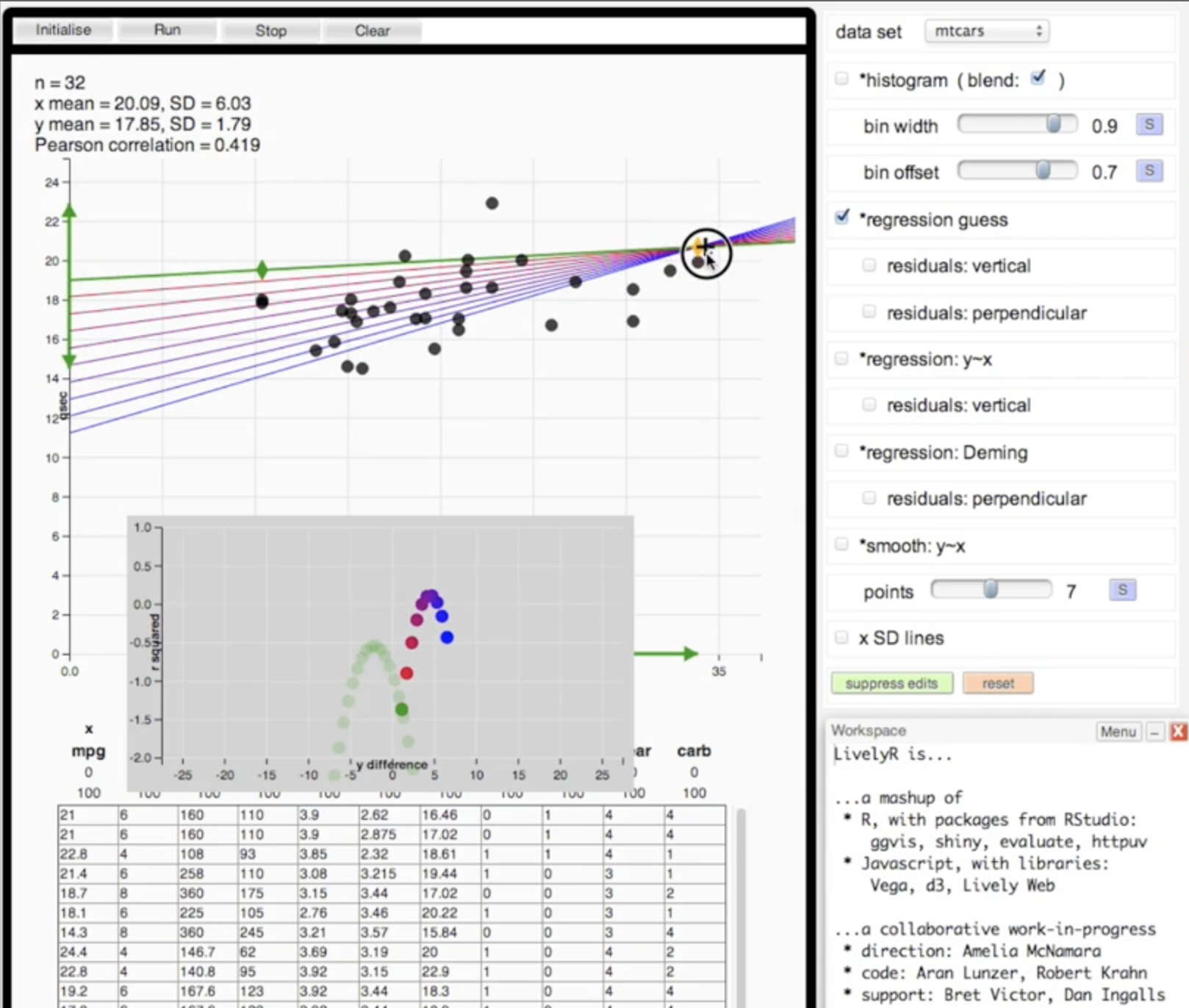
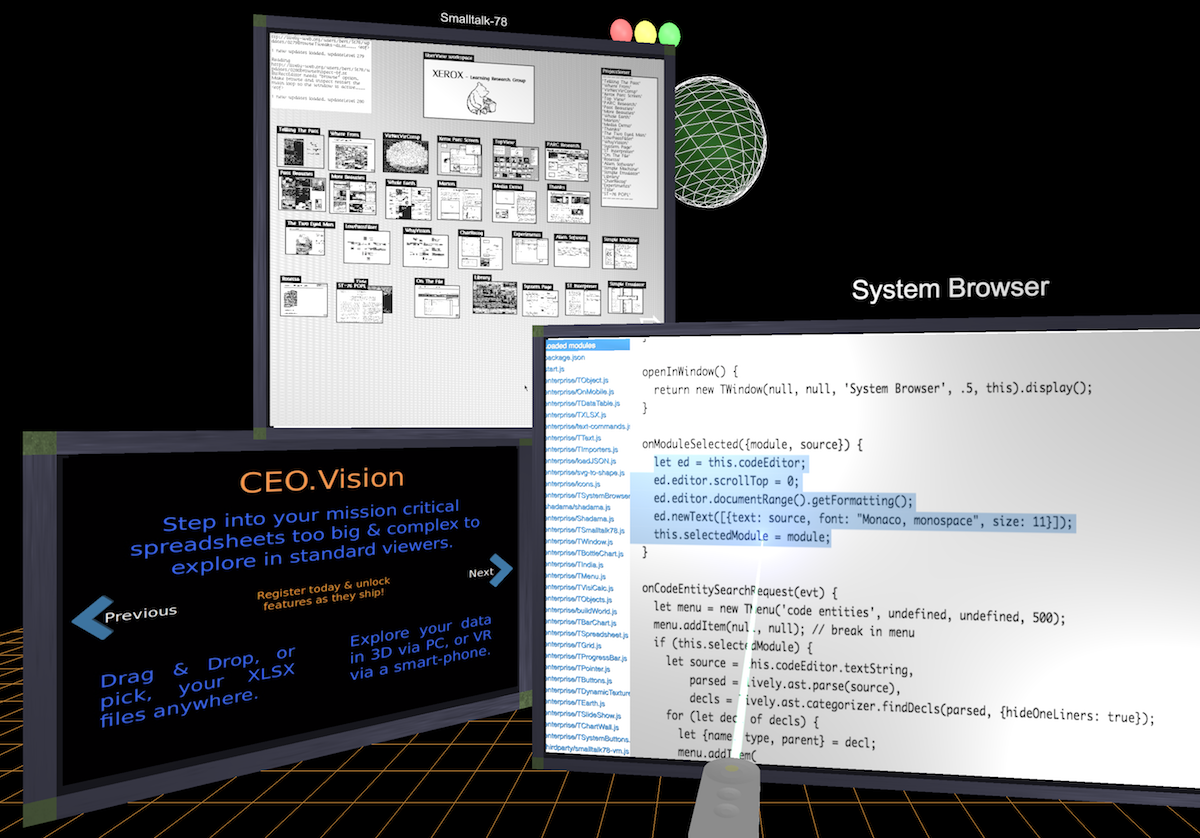
Lively creativity –
Most sketching systems provide similar tools to the artist. But providing a view onto the underlying operations offers the power to bring art to life.
The user’s actions become active objects that can be invoked without having to learn a programming language.
This creates a natural onramp from informal sketches to live simulation.
The power of action blocks brings a sketched clock to life.
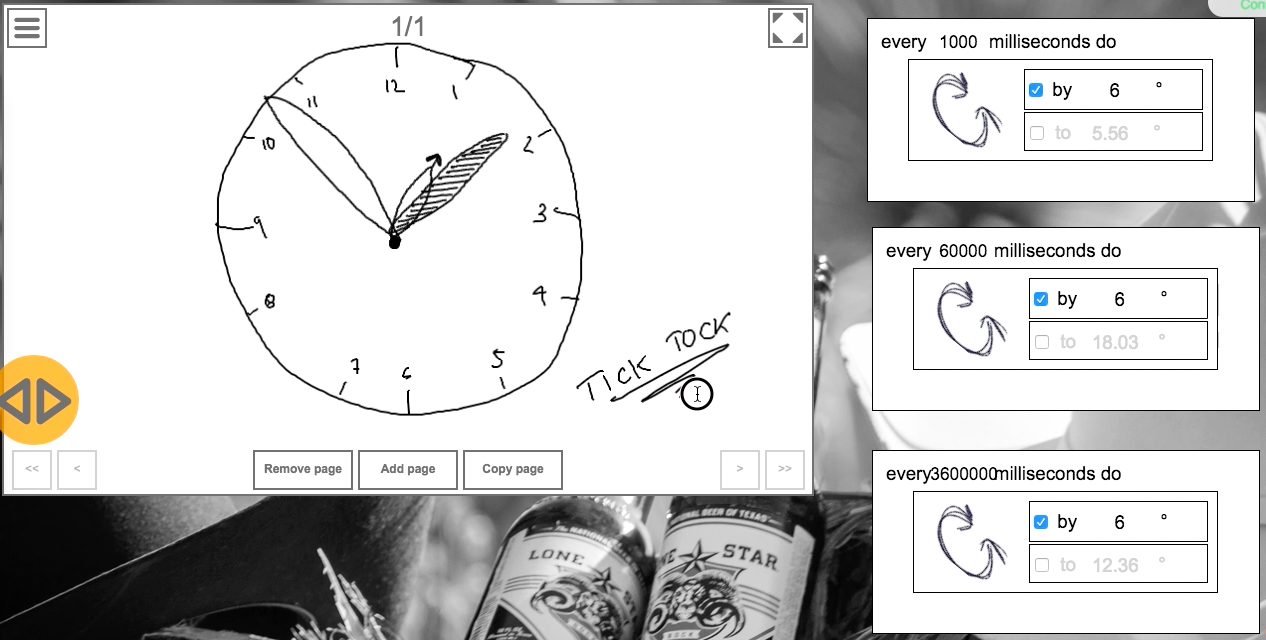
Bringing ideas to life –
An always accessible live meta system provides live changes, immediate feedback, powerful tools and enhanced productivity.
Our latest platform provides a formal basis for tracking changes. At the simplest level, this affords undo/redo of all operations and even time-travel debugging.
Moreover, this suggests a model for the entire computing experience, where all prior work can be revisited in its active state with the same rigor as a lab notebook.
The Lively metasystem allows travel back and forth through changes in time. Our goal is to keep a Time-Machine-style record of all work done in this environment.
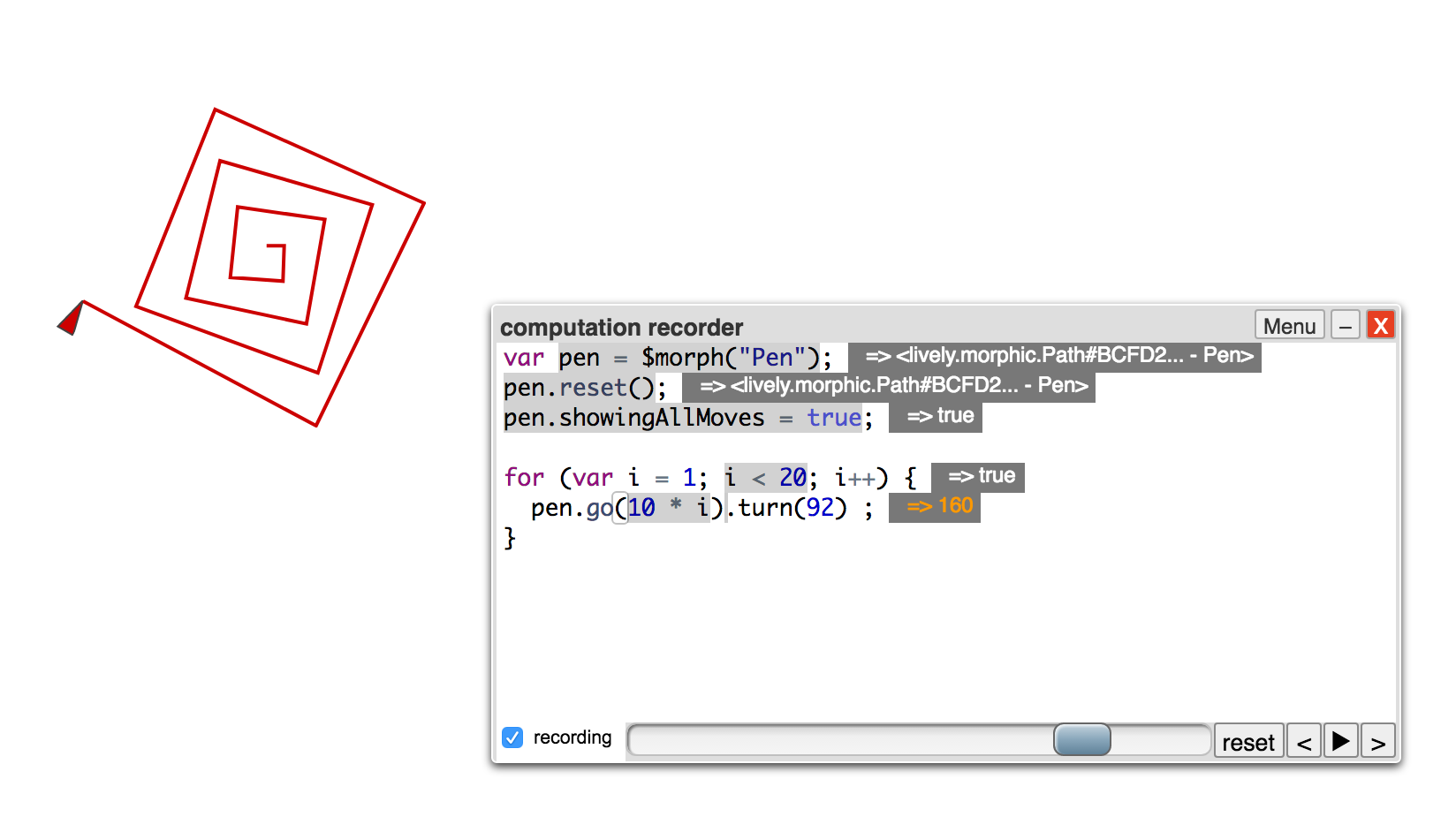
What it means –
With the power of the core system available, we can bridge the gap between concrete objects and abstract properties, and also between concrete actions as program elements.
In Lively we freely move between simple “blocks programming” and actual JavaScript code.
Seamless transistions between user actions, block-style programming, and actual program code (JavaScript).

In our genes –
The computer is the most open-ended tool humans have ever built, but most applications fail to deliver anything like the potential of a computer to amplify the human spirit. They may be attractive sculptures, but they are not clay.
Our systems have always remained open with full access to the supporting graphical, programming and networking metasystems.

In just a couple of minutes, Lively can reach out to the web or even the operating system to fetch real time data, and that can be connected graphically to one of a number of available visualizations.
The LIVELY Project
@YCR / HARC
Exploring the power of a live meta system for education, design and creative thought
Dan Ingalls
Robert Krahn
Chaim Gingold
Matt Hemmings
Bert Freudenberg
Robin Schreiber
